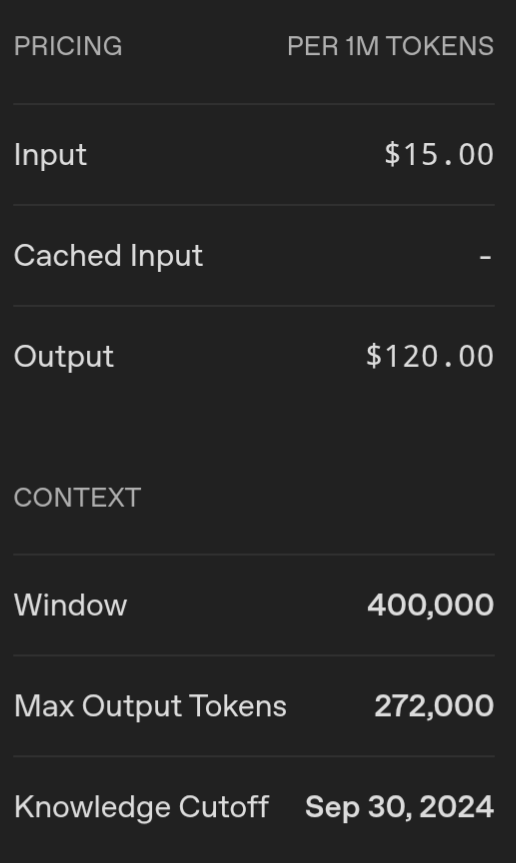To count as part of this wave of "compute-intensive offerings", I will wait until the next obviously-power-hungry service comes out, and then start a metaphorical timer for about a month, which resets whenever a new obviously-power-hungry service comes out. When the timer hits 0, I will close the market. I won't be following this timer strictly, I will be resolving subjectively. So small delays would not make this market close, but large delays could.
I will use my best judgment here, but I want to do this subjectively.
Update 2025-09-21 (PST) (AI summary of creator comment): - No credit for surprise at lack of ability: Outcomes/answers based on "being surprised by lack of ability" will not be considered in resolution.
Update 2025-12-16 (PST) (AI summary of creator comment): The creator has determined that the relevant time period for "compute-intensive offerings" ended a couple months ago (around when Pulse and Sora 2 were released). The market will be closed and remaining questions resolved NO.
🏅 Top traders
| # | Trader | Total profit |
|---|---|---|
| 1 | Ṁ275 | |
| 2 | Ṁ101 | |
| 3 | Ṁ76 | |
| 4 | Ṁ39 | |
| 5 | Ṁ29 |
People are also trading
its thats not compute intensive then idk what is
@prismatic some parallel test time compute setup like gpt 5.2 pro
@JoshYou Like I think Sam's tweet just refers to Pulse and Sora. Maybe some other stuff that got delayed/cancelled? Atlas also came out in the relevant time period but doesn't quite fit.
@JoshYou Agree that Sam likely meant Pulse and Sora 2. Maybe stuff that got delayed/cancelled, yeah, but I think a couple months ago is long enough to close this market and resolve the remaining questions NO. Any objections? @traders
Will likely N/A the poll option, as unfortunately I should've polled as Sora 2 came out, I worry asking in retrospect could make people downplay their surprise.
@MingCat I think this is fair. But also, in my opinion, Sora 2's abilities weren't exactly surprising—in the sense that we'd already seen all of that (including native sound output) from Veo 3 months prior. Veo 3 was the real surprising one; Sora 2 was an incremental step-up over that, more impressive at times and with a better ability to grasp the TikTok meme concept, but nothing particularly new in terms of abilities per se that would surprise people who'd seen their fair share of Veo 3 outputs.
@moozooh Yeah, I expect even if I had done the poll properly, people wouldn't have seen it as surprising. I still think it wouldn't be fair to run the poll now, though.
@MingCat GPT-5 Pro is now available in the API as well. Given these numbers, looks like you can technically hit $32.64 on one prompt, but should this count as a new offering? It's just been made available in the API, right?

Do we think pulse is one of them? It seems potentially compute heavy if it’s doing essentially multiple calls to the “deep research” mode for everyone signed up every day indefinitely?
@JasonQ imo the pulse features appear to be part of (and perhaps all of?) what the tweet was referring to. c.f. https://techcrunch.com/2025/09/25/openai-launches-chatgpt-pulse-to-proactively-write-you-morning-briefs/
OpenAI CEO Sam Altman said earlier this week that some of ChatGPT’s new “compute-intensive” products would be limited to the company’s most expensive subscription plan — which is the case for Pulse.
[…]
The company says it would like to launch Pulse to all ChatGPT users in the future, with Plus subscribers to get access soon, but it first needs to make the product more efficient.
[…]
It remains to be seen if Pulse is worth the computational power it requires to work. Fry [OpenAI Product Lead] says the service can “vary tremendously” in how much computing power it spends on a given task — for some projects, it’s fairly efficient, but others may require searching the web and synthesizing lots of documents.